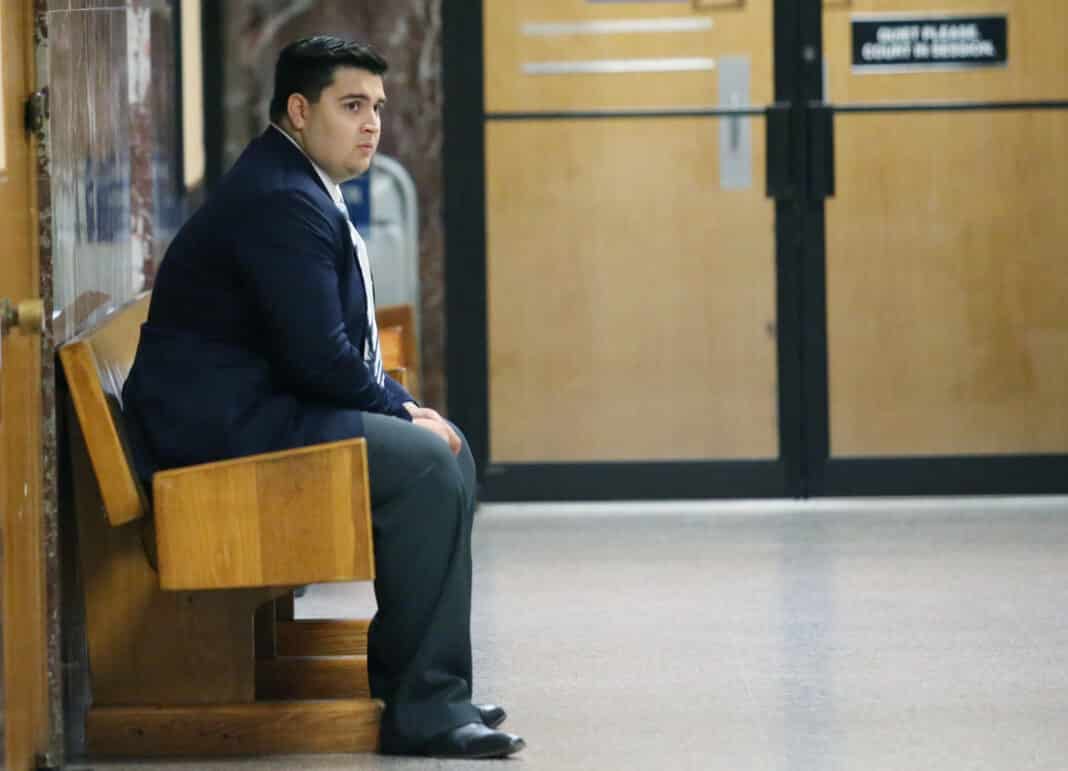Attorneys for Jose Luis Garcia Jr., the man acquitted in the murder of Rio Grande City teen Chayse Olivarez but found guilty of tampering with evidence in 2019, are seeking a new trial, arguing Garcia’s confession should not have been allowed into evidence during the trial.

The appeal, filed on Feb. 2 with the 13th Court of Appeals, argues Garcia’s statement confessing to Olivarez’s murder was coerced by law enforcement and should not have been allowed into evidence during the trial.
“The trial court reversibly erred by denying Appellant’s motion to suppress the statement of accused,” the attorneys argued in their brief. “The judgment of the trial court should be reversed, and this case should be remanded for a new trial.”
Garcia was charged with the 2017 murder of Olivarez along with a count of tampering with physical evidence, a human corpse and a count of tampering with physical evidence.
A jury acquitted him of the first two counts but convicted him of the second charge, sentencing him to eight years in prison.
Before the start of the trial, though, Garcia’s attorneys filed a motion to suppress the statement he made to officers when they detained him for questioning in early August 2017.
They point out that when officers approached Garcia, then 17, after football practice, they did not have a warrant for his arrest.
At the time, a Rio Grande City police officer stopped Garcia for two alleged traffic violations but only issued him a warning but nevertheless, Garcia was detained.
“Unfortunately for Appellant Garcia, the traffic stop that should have ended when he was given his traffic citation warning, evolved into an illegal arrest when he was detained for further questioning,” the brief stated.
Officers handcuffed Garcia and transported him for questioning to the Starr County sheriff’s office.
There, his attorneys claim, an officer with the Texas Rangers interrogated Garcia for three to four hours. Garcia was allegedly in handcuffs for close to an hour.
“During this interrogation, (Texas Ranger Eric Lopez) is adamant that Appellant Garcia was not under arrest and was merely detained,” the brief stated. “Yet, Lopez Mirandized Appellant Garcia.”
The attorneys further argue that Lopez coerced Garcia into confessing to Olivarez’s murder.
“He continuously assured Appellant that ‘he knew the truth,'” they state. “Further, Lopez repeatedly told Appellant he couldn’t ‘help’ if Appellant Garcia does not tell him what happened.”
They also allege that Garcia had asked for an attorney before making incriminating statements but “Ranger Lopez pushed back by making more statements and promises, like ‘why would you need a lawyer … we’re just talking.'”
Garcia was later taken to the scene of the crime and during a walkthrough of the area, law enforcement discovered Olivarez’s remains and Garcia revealed the location of the weapon.
After the walkthrough, Garcia asked if he could go home, but it was at that point that law enforcement arrested and charged him with murder; tampering with evidence, corpse; and tampering with evidence, firearm.
From how the events unfolded, Garcia’s attorneys argue that Garcia was “unlawfully seized” in violation of his fourth amendment rights, that he was denied his fifth amendment right to remain silent, and that he was denied his sixth amendment right to legal counsel.
Additionally, they argue that the trial court was wrong in finding that Garcia’s detention by the police was reasonable, thus allowing his confession to enter into evidence.
Though visiting state District Judge Rogelio Valdez did allow the confession into the evidence, he instructed jurors that if they found the traffic stop lacked probable cause, to not consider any evidence obtained from that traffic stop, which would include the confession and crime scene walk-through.
“(Garcia’s) Statement of Accused was the fruit of the poisonous tree planted by the purposeful and flagrant overreaching behavior of the Texas Rangers, Starr County Sheriff’s Office, and Rio Grande City Police Department Officers and should have been deemed a Due Process violation and excluded,” the attorneys said.
Attorneys for the state have yet to file a response to the allegations.
Garcia’s attorneys are requesting to present their case through oral arguments before the appellate court but a decision on that request has not been issued.





